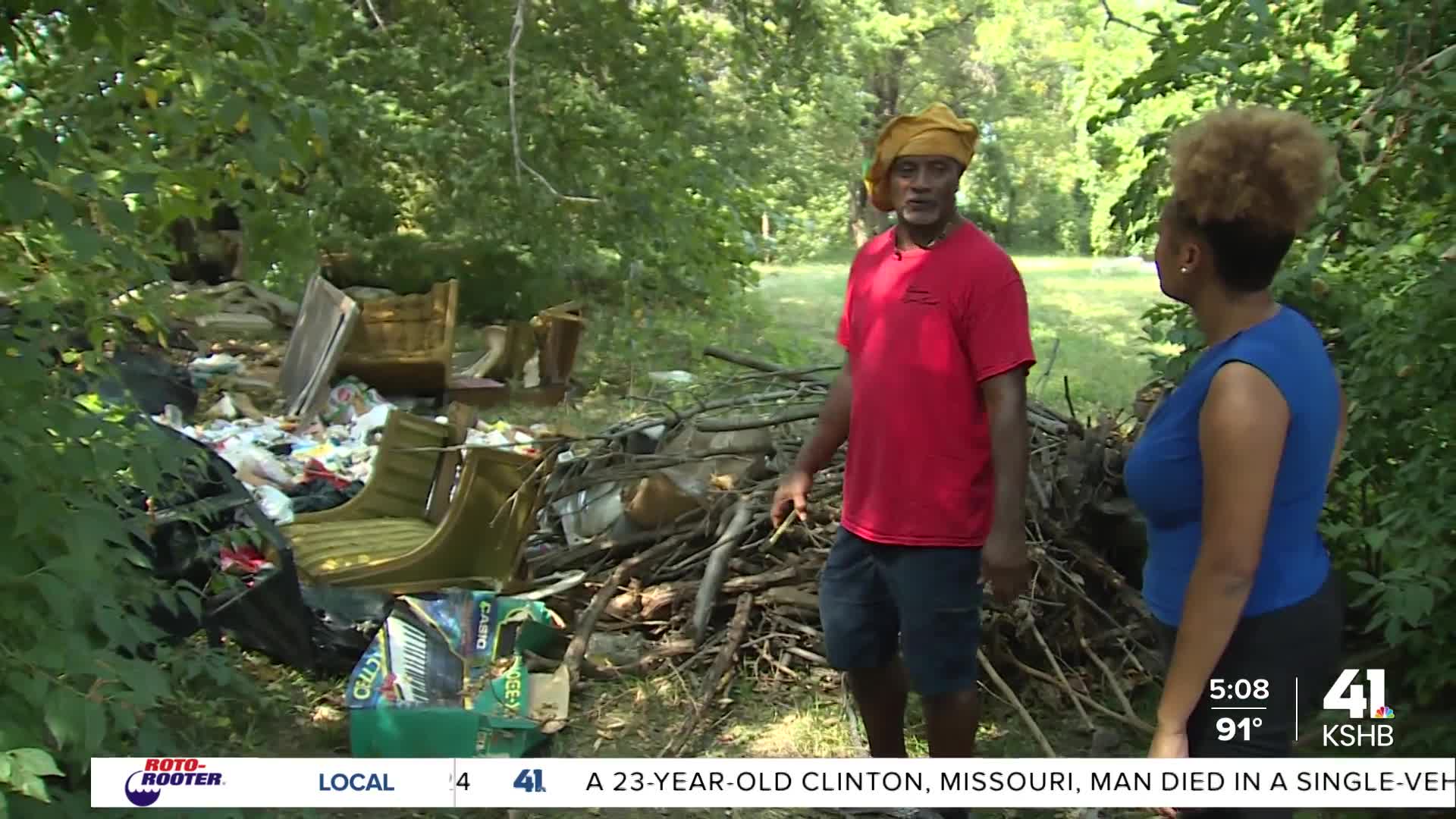KSHB 41 reporter Rachel Henderson covers neighborhoods in Wyandotte and Leavenworth counties. Share your story idea with Rachel.
—
Wyandotte County is investing $100,000 in security cameras that can read license plates to combat illegal dumping after the problem reached alarming levels throughout the community.
The newly adopted county budget includes funding for surveillance equipment that will feed data directly into the real-time crime center, giving police a stronger enforcement mechanism to catch violators.

Three county departments are also launching a pilot program, coordinating efforts every Monday to target illegal dumping hot spots throughout the city.
The Building & Logistics, Streets, and Demolition & Abatement departments will work together on the initiative.
"Organizationally, we're going to coordinate those efforts better across departments," Dr. Shelley Kneuvean, chief financial officer for the Unified Government, said during a Sept. 8 budget discussion.
The illegal dumping problem has hit local businesses particularly hard.
Gary Wilson, who has operated Wilson's Pizza in Wyandotte County for decades, discovered piles of trash dumped behind his restaurant.
It prompted him to go live on Facebook, an act that garnered thousands of views.
"It really pissed me off to see all this garbage out here like this," Wilson said.
It definitely wasn't a sign of respect.
Wilson said respect is something he's earned after years of serving the community.
"You give respect, you get a lot of respect back. You treat people good, they'll treat you well," Wilson said.
The county commission adopted the budget Monday night.

In previous sessions, some commissioners questioned the high cost of the camera system.
"This would actually be feeding data into the real-time crime center, so police, we can have a stronger enforcement mechanism around that," Alan Howze, assistant county administrator for the Unified Government, said during a Sept. 4 budget workshop.
Violators can face fines up to $2,500, but catching them in the act has proven difficult.
One lot required cleanup crews to return just three weeks after the last removal of illegally dumped materials.
"I gotta give the UG credit on that," Wilson said.
Property tax increases are expected to fund some additional services, even as illegal dumping continues to strain county resources.

Wilson believes the solution requires a community-wide change in attitude.
"We just gotta change the mindset," Wilson said. "If you're in the county or out the county, stop the dumping, yes. Especially dumping behind my building."
For information on how to dump items legally or for help setting up your own residential trash service, visit the UG's website here.
—





